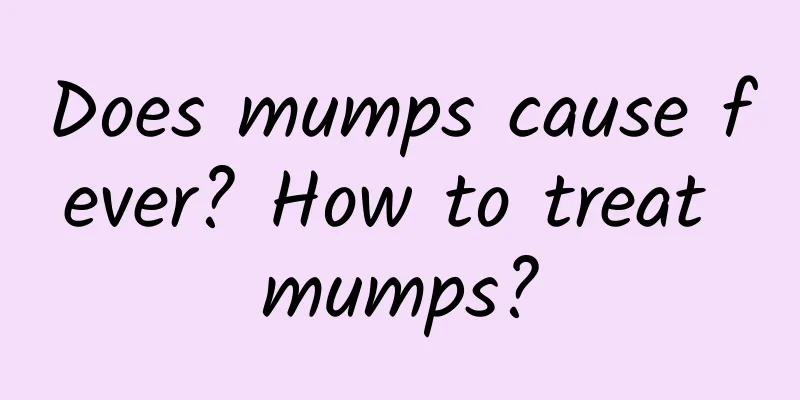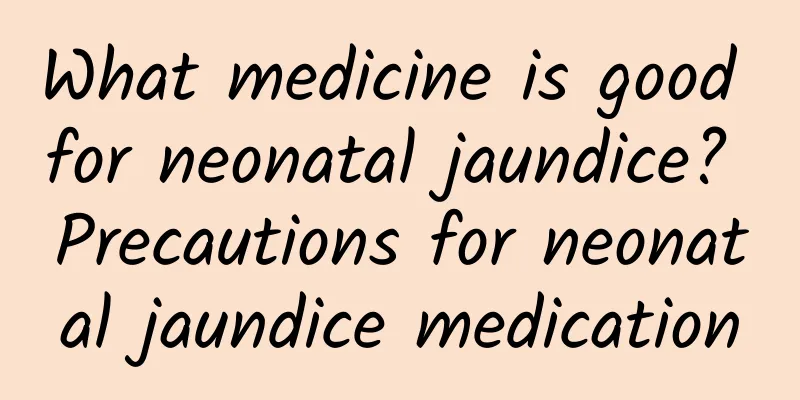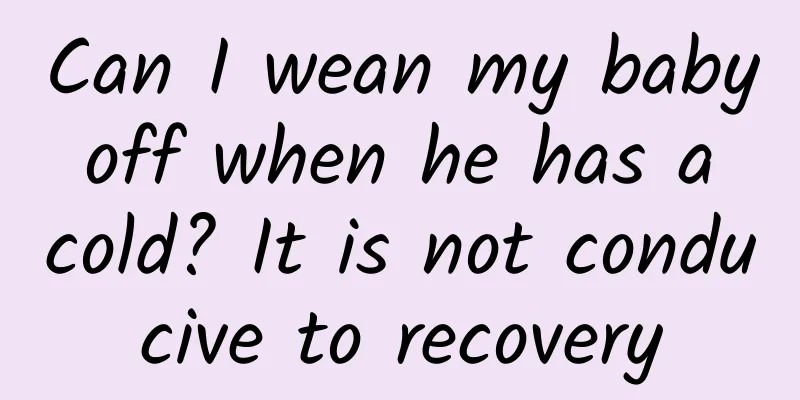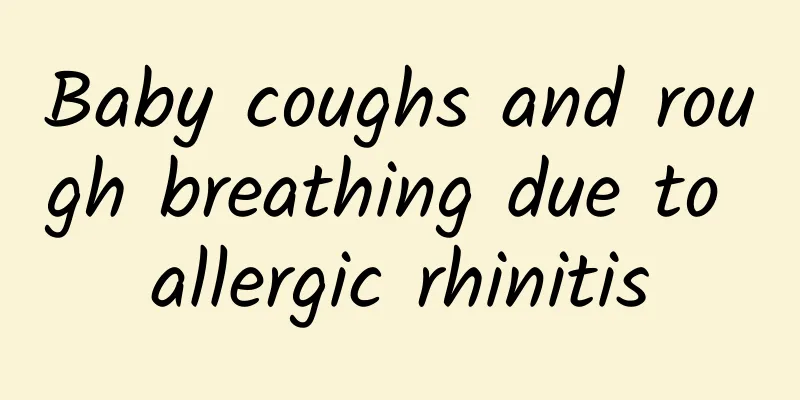Does mumps cause fever? How to treat mumps?

|
Mumps is a common infectious disease in children. The disease is caused by the mumps virus. The virus mainly invades the parotid gland and other parts through the respiratory tract, causing non-suppurative inflammation of the parotid gland. Children mainly present with diffuse swelling and pain of the parotid gland on both sides or one side. Mumps usually develops rapidly, with symptoms such as fever, chills, irritability, and general discomfort at the beginning. Some children may not have fever or other systemic symptoms at the beginning. Then the parotid gland swells, usually with the earlobe as the center, spreading to the surrounding area with unclear edges. When the parotid glands swell, most children still have a high body temperature. The degree of fever is uncertain. Most of them have a moderate fever. It can be seen that there is a high fever, and some children show a low fever. Generally, the degree and duration of fever are not directly related to the degree of parotid swelling. The duration of fever is inconsistent, with a short fever of 1 to 2 days and a long fever of 5 to 7 days. A few children may even have a fever for 2 weeks. When children have mumps, they often have some complications. For example, the virus invades the meninges and can cause meningoencephalitis. At this time, children often show high fever, headache, drowsiness, and even convulsions and coma. But generally speaking, the body temperature will not continue to rise for a long time, and other symptoms will recover quickly. Generally speaking, the prognosis is better. If the virus invades the gonads, orchitis or oophoritis may occur. At this time, children may have a high fever, testicular or lower abdominal pain. Generally speaking, mumps can have a fever in the early stage, but the fever is not high, and some children have a normal body temperature. During the parotid swelling period, most children have fever, but the fever is not severe and the duration is uncertain, and moderate fever is common. When meningoencephalitis, orchitis or oophoritis occurs, fever often occurs, and some fever is high. When children with mumps have fever, they can be given a small dose of antipyretics or physical cooling. When the parotid swelling and fever are severe, interferon treatment can be used to accelerate swelling and shorten the fever. |
<<: What should I do if my child has recurrent mumps? What should I do if my child has oral ulcers?
>>: What are the prevention methods of mumps? How can mumps be treated?
Recommend
What to do about severe pseudohypertrophy and malnutrition? How to prevent severe pseudohypertrophy and malnutrition?
Severe pseudohypertrophic malnutrition usually st...
Which cough suppressant for children is the most effective? Is cough suppressant for children really effective?
We should pay attention to the following methods ...
3 instructions for using Little Sunflower Cold Granules, and 3 precautions
The function of Xiaokuihua Cold Granules is to re...
What should I do if my baby coughs badly at night? How should I take care of my baby if he coughs badly at night?
The temperature difference between autumn and win...
Can children with acute laryngitis eat bananas?
It is not recommended to eat bananas for children...
What to do if a child has a long cough
Although cough is a very common disease in childr...
Why does diarrhea in children cause persistent and chronic diarrhea?
The causes are more complicated, such as general ...
Why do babies have indigestion when eating breast milk? How to judge baby's indigestion
Many newborn babies cannot judge whether they are...
What medicine should babies take for cough
If the baby's cough is severe, timely medicat...
What should I do if my child has diarrhea and high platelet and lymphocyte counts?
What should I do if my child has diarrhea and hig...
Causes of mumps in children
The main causes of mumps in children include vira...
What are the symptoms of hand, foot and mouth disease in children?
During the high incidence of hand, foot and mouth...
Can acute laryngitis in children be cured?
Acute laryngitis in children is more common in wi...
How to prevent acute laryngitis in children
How to prevent acute laryngitis in children? In f...
What is the difference between baby herpetic pharyngitis and hand, foot and mouth disease?
Although baby herpetic pharyngitis and hand, foot...









